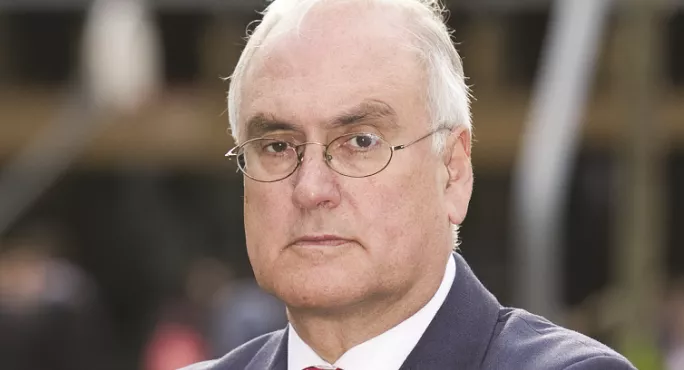Sir Michael Wilshaw says the performance of the brightest pupils in England’s non-selective state schools is the most critical to the success of the country.
Writing in his monthly commentary, the chief inspector of schools bemoans the fact that thousands of children who succeeded in primary school were not reaching their full potential when they moved into secondary school.
Tougher tests at key stage 1 and 2 have succeeded in closing the gap between poorer pupils, including the most able, and their wealthier peers, he says.
To counteract the drop in performance of the most able students, the 68-year-old reiterates his call for the government to reconsider bringing back national tests at KS3.
“Those who indulge in moaning and whingeing about national testing need to remember that when standards decline, it is the most disadvantaged pupils who suffer the most,” Sir Michael writes.
“It is surely no coincidence that the attainment gap starts to widen again during the secondary school phase.”
The former headteacher says it is a “national scandal” that the 28 percentage point gap in attainment between 16-year-olds in receipt of free school meals and their peers has “barely shifted in 10 years”.
One of the main reasons for the gap at secondary school is the “absence of any formal testing between the ages of 11 and 16”, which allows bright children to “drift” through the first few years of secondary school, he writes.
‘Wasted years’
Sir Michael, who steps down from his role at the end of the year, refers to this period of a student’s schooling as “the wasted years”.
“I urge the government to consider bringing back external national testing at key stage 3. I firmly believe that it was a mistake to abolish these tests in the first place,” he says. “If we are serious about helping all disadvantaged children, but especially the most able, to learn well and unlock their full potential, we need to know how they are doing at 14 as well as at seven, 11 and 16.”
According to the watchdog, 68 per cent of pupils at non-selective secondary schools who achieved a level 5 or above in both English and mathematics at the end of primary school failed to attain A* or A grades in the subjects at GCSE last year.
Twenty-seven per cent of previously high-attaining pupils failed to achieve a grade B.
But critics would highlight that this is a result of the exam regulator Ofqual’s clampdown on grade inflation, which pegs a year group’s GCSE results to the previous year’s, adjusted to take into account their prior attainment.
Kevin Courtney, acting general secretary of the NUT teaching union, criticised Sir Michael’s comments, claiming more tests in schools risked them becoming “exam factories”.
“It should not be forgotten that KS2 tests results were not designed as a predictor for GCSE attainment. This is evident from the fact that many secondary schools retest pupils in Year 7 to take into account cognitive skills,” Mr Courtney said.
“Sir Michael Wilshaw misses the point completely by calling for more national tests at age 14. The obsession with testing is narrowing the curriculum which young people receive and causing disaffection among learners. Schools are in danger of becoming exam factories.”
However, the head of Ofsted’s comments were supported by Sir Peter Lampl, chair of social mobility charity the Sutton Trust, who said Sir Michael was “absolutely right”.
“We have shown in our research how this ‘missing talent’ means that a third of disadvantaged boys and a quarter of disadvantaged girls in the top 10 per cent nationally at age 11 are outside the top 25 per cent by their GCSEs,” Sir Peter said.
Want to keep up with the latest education news and opinion? Follow TES on Twitter and like TES on Facebook




